Election 2022: A Push to the Polls
A rundown of several key national and local races in the upcoming election on Tuesday, November 8.

Inflation. Rising prices. Cost of living. The overturn of Roe v. Wade. Proposed bans on some forms of contraception. Bills attacking trans youth. Bans on Medicaid coverage for trans health care. The fate of same-sex marriage facing an overzealous right-wing court. If this year’s election doesn’t get people motivated, it’s unclear whether anything ever will.
For LGBTQ people especially, this year’s midterms are consequential, whatever the final outcome. Given the typical pattern exhibited during a midterm election, with Democrats in control of the White House, the party out of power usually gains seats in Congress.
With Republicans poised to gain seats and take control of the U.S. House of Representatives, the presumptive Speaker of the House, Congressman Kevin McCarthy (R-Calif.) is unlikely to allow any votes on pro-LGBTQ legislation in the next two years.
However, the size of the GOP majority after the elections may determine whether Republicans are willing to push forward with “culture war” bills like Georgia Rep. Marjorie Taylor Greene’s bill to criminalize gender-affirming treatments for youth, or Louisiana Rep. Mike Johnson’s bill to prohibit LGBTQ topics or discussions in schools. The smaller the majority, the less likely the GOP is to attempt to push potentially divisive legislation, for fear of losing moderate votes. But the larger the majority, the more leeway McCarthy has to placate the Republican base by pushing socially conservative legislation.
In terms of the ongoing fight for the U.S. Senate, either political party could control the upper chamber, depending on the outcome of the elections in various swing states. Democrats currently enjoy a 50-50 edge, with Vice President Kamala Harris serving as a tiebreaker. But weaker-than-expected GOP Senate candidates in a number of states have given Democrats an outside chance of retaining their majority, despite the political headwinds the party faces.
When it comes to LGBTQ representation in the House of Representatives, the outcome is an open question. Currently, there are nine out LGBTQ members of Congress. But New York Congressman Mondaire Jones lost his primary after a court-ordered redistricting forced him to switch districts in order to avoid a costly primary against Sean Patrick Maloney, a fellow gay Congressman and currently the head of the Democratic Congressional Campaign Committee.
Additionally, Maloney’s fate is uncertain, as the Cook Political Report rates his race a “toss up.” Other members of the LGBTQ House caucus who are vulnerable this year include Minnesota Rep. Angie Craig, Kansas Rep. Sharice Davids, and New Hampshire Rep. Chris Pappas. Losing those members would cut the caucus in half.
While Vermont Democrat Becca Balint and California Democrat Robert Garcia, the mayor of Long Beach, are largely expected to win their races, other LGBTQ candidates are in more competitive districts, including Eric Sorenson, a gay meteorologist seeking to represent northwestern Illinois; Jamie McLeod-Skinner, a small business owner running for Congress in Oregon; and Will Rollins, a former national security prosecutor running in a Republican-leaning district in Southern California.
As a result, we could see a decrease in LGBTQ representation in Congress, even with New York’s 3rd Congressional District all but certain to elect an out gay man — though whether that will be Democrat Robert Zimmerman or Republican George Devolder-Santos remains up in the air.
In the Senate, there are no openly LGBTQ candidates running for office this cycle. But a number of LGBTQ allies could be vulnerable.
In Democratic-held seats like Georgia, Arizona, Nevada, and New Hampshire, Senators Raphael Warnock, Mark Kelly, Catherine Cortez Masto, and Maggie Hassan, respectively, are locked in tight races with vehemently anti-LGBTQ candidates.
Their opponents include Herschel Walker, who has ridiculed transgender veterans; Blake Masters, who opposes the legalization of same-sex marriage and has joked — in an attempt to lampoon “wokeness” — that Black, female and gay officials at the Fed are responsible for the country’s poor economy and runaway inflation; Adam Laxalt, who has endorsed the idea of a nationwide “Don’t Say Gay” bill similar to the one that passed in Florida earlier this year; and Don Bolduc, who has been called out for using a homophobic slur in an ad and is one of several GOP candidates who have repeated a debunked anti-transgender conspiracy theory that public schools are installing “litter boxes” to accommodate children who identify as cats.
In Republican-held seats, anti-LGBTQ incumbents like Wisconsin’s Ron Johnson, Florida’s Marco Rubio, and North Carolina’s Richard Burr appear poised for victory, as does Ohio GOP nominee J.D. Vance, who has not only mocked members of the LGBTQ community on various occasions but has held up anti-LGBTQ policies pushed by Hungarian Prime Minister Viktor Orban’s Fidesz party as something that the United States should emulate.
Meanwhile, in the seat of retiring Pennsylvania Sen. Pat Toomey, TV personality Dr. Mehmet Oz faces off against Lt. Gov. John Fetterman. While Oz has earned plaudits for supporting same-sex marriage, he has run campaign ads denouncing transgender participation in sports, praised Florida’s “Don’t Say Gay” law, and held up a representative from a pro-conversion therapy organization as an “expert” on his TV show.
Fetterman, who is a more progressive Democrat, has largely fallen in line with his party on LGBTQ issues, supporting nondiscrimination legislation like the Equality Act, calling for the lifting of restrictions prohibiting sexually-active gay and bisexual men from donating blood, and officiating the first same-sex wedding in his home county when he was the Mayor of Braddock, Pennsylvania.
In terms of governorships, Maura Healey of Massachusetts and Tina Kotek of Oregon are running to become their states’ first out lesbian governors. But Kotek, along with several straight incumbents who have been LGBTQ allies, such as Kansas Gov. Laura Kelly, New York Gov. Kathy Hochul, and Nevada Gov. Steve Sisolak, all face highly competitive races this year.
Michigan Gov. Gretchen Whitmer, Wisconsin Gov. Tony Evers, and Minnesota Gov. Tim Walz are favored but also facing political headwinds this year — an important development, due to the fact that they have been able to veto or threaten to veto anti-LGBTQ legislation promulgated by Republican lawmakers in their respective states.
Even in Pennsylvania, where Attorney General Josh Shapiro is favored in his race for governor, the prospect of an upset win by GOP nominee Doug Mastriano has LGBTQ advocates concerned. Mastriano has supported a bill to ban LGBTQ discussions in schools, has criticized current Gov. Tom Wolf (D) for blocking taxpayer dollars from going to conversion therapists, opposes same-sex marriage and adoption, and has vowed to ban transgender athletes from competing in sports based on their gender identity.
Locally, while most of the candidates seeking office in the District of Columbia are LGBTQ-supportive, LGBTQ advocates and proponents of Home Rule have warned that a Republican-led Congress may seek to intervene in local political matters, and could even propose repealing the city’s ability to govern itself, or offer budget riders restricting what programs federal money can be used to fund. As such, D.C. residents will likely want to ensure they elect a mayor and a Council able to stand up to congressional interference.
In the D.C. mayor’s race, Democratic incumbent Muriel Bowser faces Republican Stacia Hall, Libertarian Dennis Sobin, and independent Rodney “Red” Grant. In the Council Chairman’s race, Democratic incumbent Phil Mendelson faces off against Republican Nate Derenge and the Green Party’s Darryl L.C. Moch. In Wards 1, 3, 5, and 6, Democratic nominees Brianne Nadeau, Matt Frumin, Zachary Parker, and Charles Allen are expected to win easily, with Parker becoming the Council’s only out LGBTQ member.
In the District’s At-Large race, which is the most competitive of the cycle, incumbent Democrat Anita Bonds, independent Elissa Silverman, and Democrat-turned-independent Kenyan McDuffie face off against independents Graham McLaughlin, Karim Marshall, and Fred Hill, Republican Giuseppe Niosi, and Statehood Green nominee David Schwartzman for two separate seats.
Because many political observers assume Bonds will win the first seat by dint of her party affiliation, the race between the other candidates — particularly McDuffie and Silverman — has been amplified by the media and framed by some as a “proxy war” of sorts, pitting members of the local business community, real estate developers, and political moderates who prefer McDuffie against a resurgent progressive movement whose members view D.C. government as overly feal to corporate interests, and are more supportive of Silverman.
Metro Weekly encourages all of its readers nationwide to get out and vote on Tuesday, Nov. 8. For more information, visit www.usa.gov/election-day.
Support Metro Weekly’s Journalism
These are challenging times for news organizations. And yet it’s crucial we stay active and provide vital resources and information to both our local readers and the world. So won’t you please take a moment and consider supporting Metro Weekly with a membership? For as little as $5 a month, you can help ensure Metro Weekly magazine and MetroWeekly.com remain free, viable resources as we provide the best, most diverse, culturally-resonant LGBTQ coverage in both the D.C. region and around the world. Memberships come with exclusive perks and discounts, your own personal digital delivery of each week’s magazine (and an archive), access to our Member's Lounge when it launches this fall, and exclusive members-only items like Metro Weekly Membership Mugs and Tote Bags! Check out all our membership levels here and please join us today!









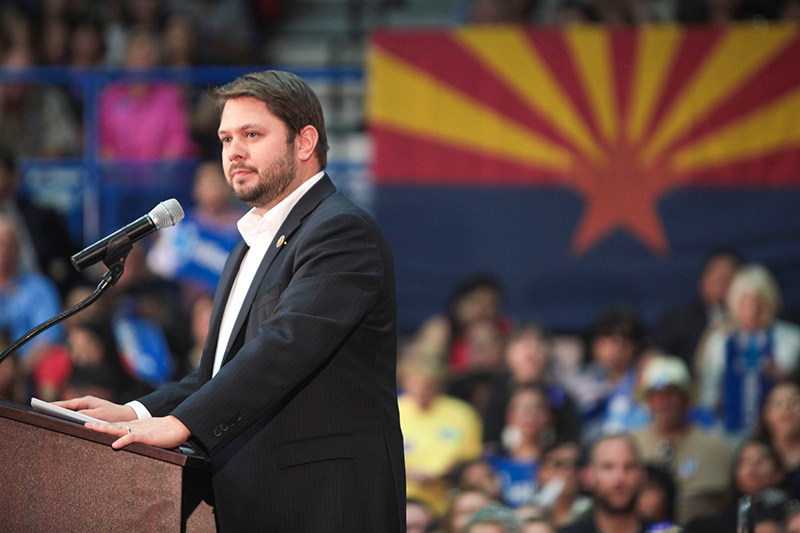
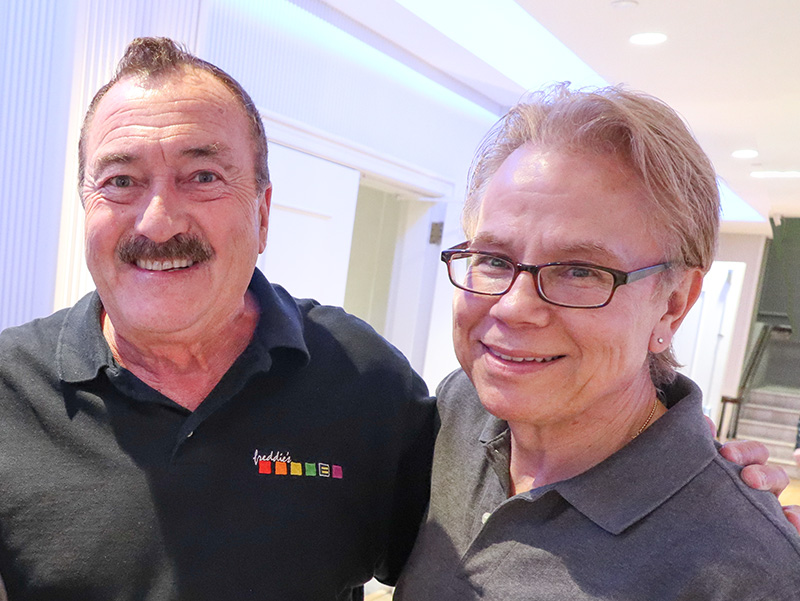














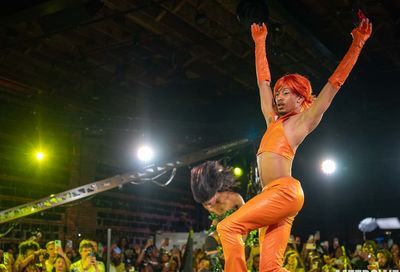

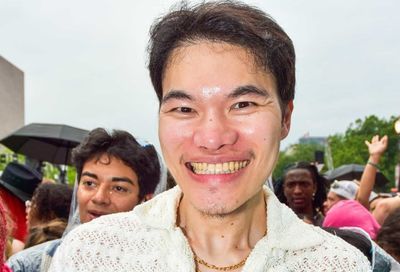
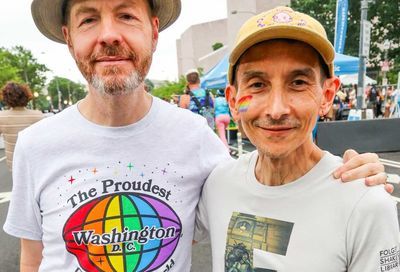
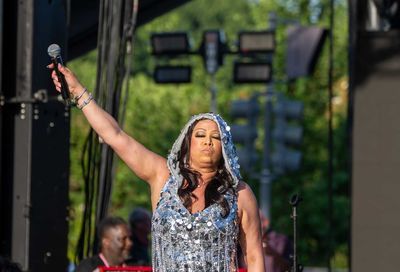


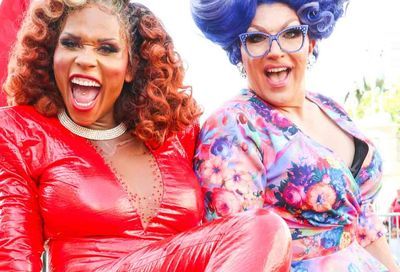
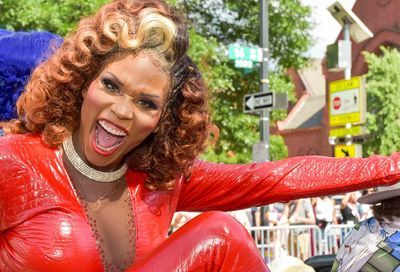
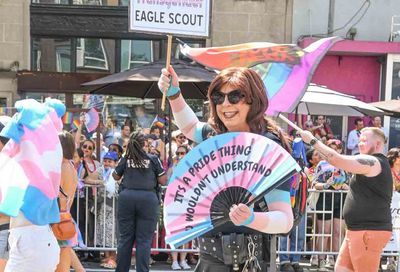
You must be logged in to post a comment.